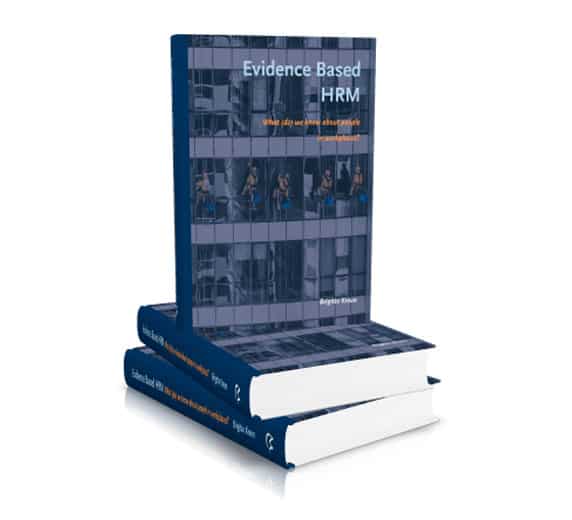Written by Alexander Waringa, Co-founder & Managing partner

An excellent reference book, free to download!
As you may know, we at UNLOQ are keen to work according an evidence-based approach, or at least an evidence-inspired one. Our mission statement says: We learn and build on what is known. In concrete terms, this means that we use the knowledge that a client already has in-house, combined with the most recent insights from science. For this, it is important to be well informed about the scientific insights in our field of work.
Some time ago, one of our clients asked me to suggest a useful, compact book with an overview of the most important scientific insights and theories in the fields of occupational and organizational psychology, sociology, organization studies and HRM. This is a great question, especially if you have not studied HR or psychology yourself. I had to think about it for a while, because while there are many good books out there, most of them deal with sub-topics or go way too deeply into a certain theory or approach.
Get your free copy here!
However, I now have the perfect book. It came out last year and has a great overview of HRM approaches underpinned by the main theories of psychology. Written by Dr Brigitte Kroon, an old colleague of Anne’s and mine at Tilburg University, it also has the perfect title: Evidence Based HRM: What (do) we know about people in workplaces?.
This book is very readable and in addition to all the theory, there are also descriptions of some good case studies. Even better is the fact that the book can be downloaded for free and is therefore easily available for everyone!
You can download the book via this link.
(Note: the pop-up might be blocked by your browser, if so try another one)

Knowledge = justified true belief
This book provides a quick reference to the core theories and the key research evidence that inform present day HRM knowledge. If you want to know more or want to refresh your knowledge about reliable HR practice, this book is highly recommended. If you are short on time and want to know which chapters are most essential, I would certainly recommend chapters 2, 3, 7 and 8 and, for a better understanding, chapter 1 too.
Finally, chapter 3 is about what knowledge really is (a bit philosophical), and there I found the following description of knowledge: ‘Knowledge = justified true belief’. And that reflects exactly how we work at UNLOQ.



